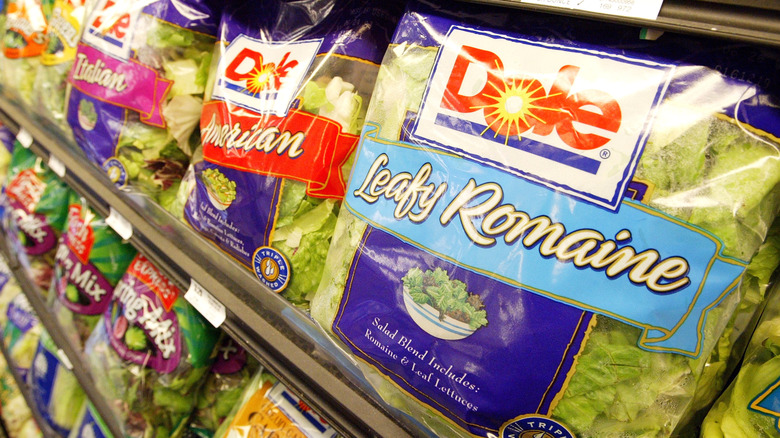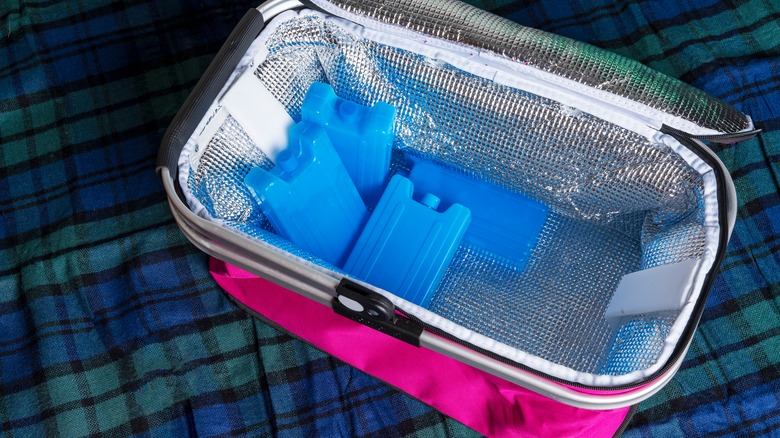Bring An Insulated Cooler Bag With You When Buying Bagged Salad
With fresh greens already pre-washed and pre-mixed, a bagged salad makes getting our required intake of veg that much easier and more convenient. But they're delicate and quick to warm outside of the produce section, particularly if your grocery run includes a few other stops.
To maximize a bagged salad's freshness and nutritional benefits, it's worth stashing them in an insulated cooler bag while you do your shopping and they're in transit to your crisper drawer. While it might seem like a hassle (sometimes it's all we can do not to forget our reusable bags), keeping such tender produce cool and crisp is an extra measure that could save them from the trash bin.
Your greens are only crisp because they arrived at the store at a very controlled temperature. When they're allowed to sweat inside the bag, it creates moisture, which leads to wilting and eventually rotting. Protecting them from the temperature changes inside the store or your vehicle will help avoid spoilage and minimize your food waste. And while a cooler bag will keep them at temperature for a time, layering your container with a few ice packs will keep them as cool as they ought to be.
Insulated cooler bags are handy for grocery shopping
Insulated cooler bags work due to their layers of materials. The innermost one that gets in contact with our food is made of water-resistant foil or plastic. It's followed by a layer of insulation material, which is usually made of foil and functions to regulate the temperature of the bag's contents no matter the temperature outside. The outermost material is sturdy and tear-resistant to protect not just your bagged salads but other grocery items as you carry them home.
To avoid forgetting to bring one on your next grocery run, have a dedicated cooler in your car so you have somewhere safe to stash food items as you transport them There are plenty of bag styles and sizes available, including collapsible ones that you can easily fold and tuck into your regular totes.
A well-insulated bag with cooling packs can store your salad kit and other food items for several days, but if you're using it only as a temporary holding area, don't forget the necessary steps for properly storing your greens once they're home. Remove them from the packaging and lay them out on paper towels to wick away moisture. Take out any wilted, browning, or slimy leaves and then dry out the rest completely in a salad spinner. Place the produce in a zip-top bag lined with more paper towels, seal the container closed, and store it in the crisper drawer.

